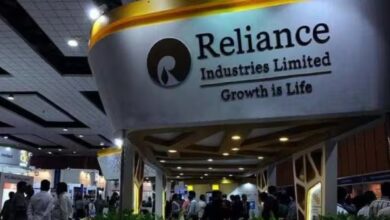Get money at lower rates than personal loans by pledging your FD, shares, and gold
For their urgent financial needs, borrowers often resort to personal loans from banks and non-banking financial institutions (NBFCs). In contrast to other options, these loans often have higher interest rates.
For instance, Punjab National Bank provides salaried clients with loans up to 24 times their gross monthly pay at interest rates ranging from 11.75 to 16.95 percent per year.

In contrast, HDFC Bank offers loans between 10.50 and 25 percent, while State Bank of India gives loans between 11.30 and 14.30 percent to salaried people without SBI accounts. For other categories of loan borrowers, the rates are greater.
There are other possibilities you might take into consideration as personal loans alternatives if you are worried about these high rates of interest.
Here are a handful of these possibilities.
Loan Against Fixed Deposits: You may borrow up to 85%–95% of the value of your fixed deposit (FD) by pledging it as collateral with the same bank where you hold your deposit. The interest rate is normally 1% to 3% higher than the FD rate. For instance, SBI charges 1% more for loans secured by FDs than the comparable time deposit rate. Thus, the effective interest rate would be no more than 8%, which would be much lower than the interest rate on personal loans.
Loan Against Shares and Mutual Funds: Borrowers may receive loans based on the current value of their assets by pledging shares or mutual funds as collateral. Loans up to 50% of the share’s present value are permitted with the pledge of equity shares. Only if you own shares that are on the bank’s authorized list are you eligible to apply for a loan against shares.
Loans up to 50% of the net asset value (NAV) for equity, hybrid, or exchange-traded funds (ETF) and 80–85% for debt funds are also available when mutual funds are pledged. For loans on mutual funds, SBI charges an interest rate of 11%, however the rate may change depending on the borrower’s credit score and the bank’s current lending policy. For instance, HDFC Bank provides digital loans with fast disbursal and a maximum loan amount of Rs. 20 lakh via netbanking.
Customers should get an overdraft capacity in their account after depositing their securities when choosing a loan against securities. In this manner, interest will only be applied to the actual loan amount used, as determined by the daily outstanding balance.
Loan Against Gold: You might also provide your gold jewelry or decorations as collateral to a bank or NBFC in exchange for a certain loan amount. In comparison to applying for a personal loan, taking out a loan against gold requires less paperwork.
The maximum loan amount with an overdraft facility is Rs. 50 lakh. Additionally, borrowers have access to loans worth up to 75% of the gold amount pledged. Compared to personal loans, the interest rates are substantially cheaper. For instance, the Gold Loan from HDFC Bank has an interest rate that ranges from 8.30 to 16.55 percent, with an average of 11.62 percent. The Goods and Services Tax (GST), government taxes, levies, loan processing costs, and valuation fees may also be assessed individually by lenders.
You may also borrow up to 80–90% of the surrender value of your insurance policy if you use a loan against it. A cash value at maturity is required for the insurance policy that will be committed to the bank or NBFC. Endowment policies and money-back policies may often be promised, but term plans cannot. SBI charges an interest rate of 11%, however this might vary amongst banks.
The insurance policy need not be with the same company that owns the bank, but it must be on the bank’s list of acceptable policies. The Life Insurance Corporation (LIC) of India and other reputed private insurers that the bank lists are often acceptable for pledge by borrowers.
Peer-to-Peer Lending Platforms: P2P lending uses internet platforms to directly link lenders and borrowers. Personal loans are available to borrowers beginning at 11%. Data from BankBazaar shows that interest rates on various platforms vary from 6.5% to 15%.
However, there is a one-time, non-refundable registration cost that may be between Rs. 100 and Rs. 1,000 that has to be paid by potential borrowers. Additionally, processing fees ranging from 2 to 8% of the loan amount may need to be paid.
The Reserve Bank of India (RBI) controls platforms for peer-to-peer lending to protect the interests of both lenders and borrowers.
These are the five alternatives you might consider if you need money now rather than taking for a personal loan.







